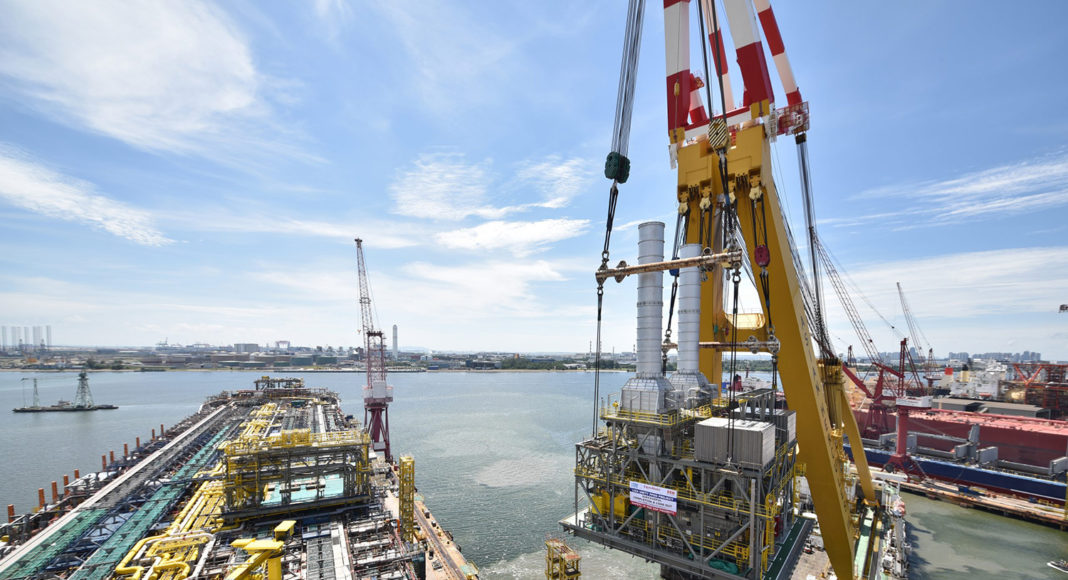With the commissioning of the gas compression system on the Liza Destiny FPSO and reduction of flaring to pilot levels, ExxonMobil says the lessons learnt from the issue which resulted in a prolonged period of flaring are being factored in as construction of other oil production vessels for Guyana progress.
President of ExxonMobil Guyana Alistair Routledge said ensuring future FPSOs do not have the same challenge is a top priority for the company and formed part of active discussions it has been engaged in with its co-venturers and the Guyana government.

“Of course, we are all interested in ensuring that we never do this again. This is not what we call normal operations,” Routledge told OilNOW. “We’re very unhappy with the way that this vessel started up. So, we’ve been proactively learning the lessons, taking those to Singapore to the team that is currently building the phase two vessel, the Unity FPSO.”
Dutch floater specialist SBM Offshore is the company contracted by ExxonMobil to build and operate the FPSOs.
Routledge said the construction, fabrication, and pre-commissioning teams working in Singapore have been incorporating those lessons learnt into the ongoing fabrication and construction work for the Liza Unity FPSO. This vessel is targeting the Liza Phase 2 development at the Stabroek block offshore Guyana. A third FPSO – Prosperity – has also been approved for the Payara development.
“So, we don’t expect to see the same problems,” he assured, while explaining that the reason for going through a commissioning phase in the startup of a new development is to find and address potential challenges.
“So, not to say we never find any challenges, but we certainly have much higher confidence that we won’t see the same level of problems on the Unity when that sets sail,” he stated, adding that it is due to set sail from Singapore for Guyana in the third quarter of 2021.
The Liza Phase 1 development has since ramped up to peak production of 120,000 barrels of oil per day



